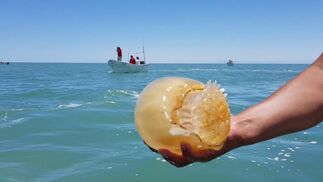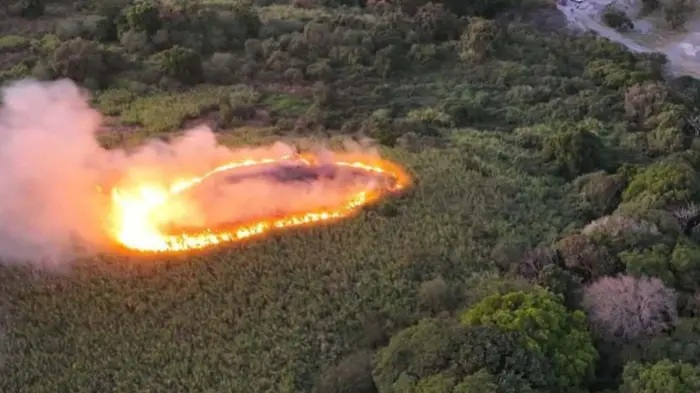Limiting capture of endangered Cannon ball jelly fish

The cannonball jellyfish, much prized in China by the cosmetology pharmaceutical and food sector could in danger of extinction and permits for its capture are being regulated by The Panama Aquatic Resources Authority (Arap)
Flor Torrijos, Arap administrator, said that in the first 100 days of management they detected that the marine species the main food source of the leatherback turtle, is in danger of extinction.
“We have to stop the capture of the jellyfish for a while because we have inherited some issues like this in which, if a study was done, we have not found it,” said the official.
Of the 30 licenses allowed, the past administration granted five. Now the new administration made the decision to reduce the permits to 10, while the investigation is being carried out. The amount of capture was also regulated.
In Panama, the cannonball jellyfish is allowed to be caught only , in the Gulf of Panama, along its coastline and at distances not greater than five nautical miles from the coast.
According to the official, the five licenses granted to the same company will also be reviewed because it has not complied with the information required by the Arap. The company has permission to operate in Aguadulce and Chitré.
At the time, when the Arap approved the capture of this marine species, the scientific community warned that there is no study in Panama that demonstrates whether or not the capture of jellyfish causes any impact on the marine ecosystem.
The same happens with the capture of the cannonball jellyfish as with other marine resources, said a source linked to the issue.
“A market claims them, and permits are granted for exploitation without having any knowledge. This was the case with the sea cucumber and shark, whose fins and stripe are extracted ”, products that have been banned and even their capture is prohibited, he said.





